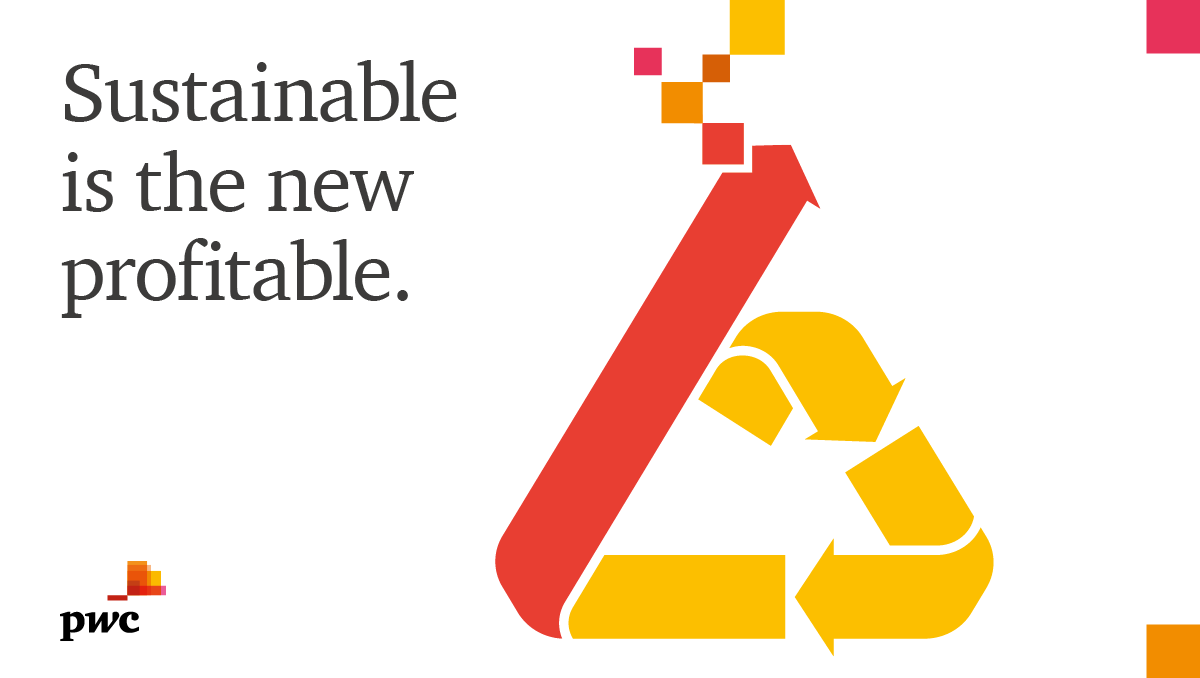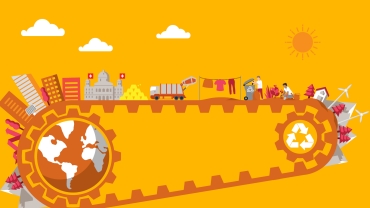
These days just about every large business transformation has an ESG or sustainability angle. What kind of leadership is necessary to embrace and further this transformation and make sure it’s sustainable?
Andreas Staubli (AS): That’s not an easy question. But I do think when it comes to this kind of transformation, leadership has to be purpose driven. Stakeholders such as customers and employees – but also investors – increasingly expect companies to have a purpose, and ESG fits very well with this expectation. But leaders have to be forceful to push the agenda, embed it in the business, and make sure it’s consistent and authentic. People hate any sort of greenwashing: pretending that you’re doing it and not really doing it.
When I see companies that have placed ESG somewhere down the side of their organisation chart, I wonder why they haven’t put it at the very top. Environmental, social governance considerations should actually be at the heart of the way that you run your business. Because at the end of the day, ESG is for business purposes. It’s about doing better business in the sense of more sustainable and more resilient: business that’s better for consumers, better for employees and better for stakeholders – including, but not limited to, investors. With companies trashed in social media because they’re not using the right products or not applying the right governance, if you don’t take the ESG concerns of stakeholders seriously your whole business is potentially at stake.
What I really want to stress is that you have to look at sustainability as a matter of value creation, not value preservation. That’s the shift of mindset that’s needed by leaders. For too long ESG, especially around climate change, was seen as risk management: do I have any liability, have I done anything wrong, have I contaminated any soil, and so on. That was pure value preservation. Now people have started to realise that there’s way more to it. They’ve worked out that by focusing on ESG the right way you can actually get a lot more out of it. If regulations evolve, you can’t control that. What you can control is what you do with it. That’s where the value creation comes in.
Christophe Bourgoin (CB): Of course, it’s not so easy to quantify the business impact of ESG. It’s not like you can go from a non-financial reporting KPI and say: “I increased diversity and inclusion and my business has done 10% better.” That correlation is difficult to make. But I think the surveys that are out there show that more sustainable businesses have been more resilient through COVID-19, for example. Is that enough to be fully representative? I can’t pretend to know the answer. But the facts are already there.
What difficulties do sustainability and ESG pose in terms of strategy, leadership and how businesses think and operate?
CB: There are two dimensions to this. One is more of a technical dimension: what organisations have to do to even keep up with regulatory developments that are moving so fast and globally. Pretty much all businesses are global these days, so they have to have to be able to monitor those developments everywhere. That’s a big enough challenge in itself.
But I think the biggest challenge many companies are facing is more cultural in nature: how to change people’s mindset to really embrace ESG and get the most out of it. This is especially difficult for companies that are already doing very well, because they might have less incentive to change, or at least to make more radical changes. But I think it’s only a question of time before companies embrace an ESG mindset. It’s becoming a differentiator. If you don’t do it, someone else will, and your market share will go somewhere else.
AS: It’s always interesting to see where sustainability sits in a company. If it sits at the CEO level, you know it’s going to be more strategic and business driven. If its sits under legal, for example, you can pretty much bet it’s about risk management or compliance. Sometimes it sits under the COO; then it’s very operational and around supply chain and those kinds of topics. But I think the higher up the organisation you manage to place sustainability, the bigger impact you’ll have.
You mentioned investors. There’s growing demand from investors, isn’t there, for companies to report and do well in terms of ESG?
AS: Absolutely. I guess the regulators and the policymakers understood pretty early on that finance will be the biggest lever of progress in ESG. That’s why you have sustainable finance and responsible investments. The view is that if we start acting on the finance and investment side, it’ll put tremendous pressure on the real economy, because the only way that somebody will be able to report whether they have green investments is if the underlying investments, in other words the companies they hold in their portfolio, provide information on these things. The regulation is already going in that direction. For example, the SEC has come out on record saying that when looking at filings it’ll start to treat nonfinancial information, which includes ESG, similar to the way it treats financial information. While nonfinancial reporting isn’t yet as harmonised as financial reporting, which makes it a bit more difficult for stakeholders to get the same level of transparency, it’s only a matter of time. This pressure from the financial and investment side is driving the topic exponentially. That’s no coincidence: it’s the way regulation’s been evolving.
But the pressure’s not just coming from regulators and investors, is it? There are also high expectations on the consumer side.
CB: Correct. I would say the market forces at play are the regulators and investors, followed by consumers. This applies less to companies in B2B, but you see it very clearly in those that deal directly with customers. There customer feedback is more important. You affect the customer directly – for example through the ingredients you have in your products or your packaging – and people see it right away. If you’re in the middle, in B2B, it’s not so visible, and maybe you’re a bit less exposed from that angle. But as I as saying earlier, some companies have been caught out because they’ve said one thing but were actually doing something else. Before you know it, it’s all over social media. And then you have an extremely difficult problem because it affects your reputation – something that’s taken years and years to build that you can lose, almost in a fraction of a second. But this is a good thing. This environment will push people to do the right things more and more.
What about the rest of the value chain? Is there scope for ESG to be much broader and target the whole chain, including suppliers?
CB: Yes. Take carbon accounting, the way companies measure and report on their greenhouse gas emissions. In addition to scope 1 and 2 carbon emissions – which are direct and indirect emissions the company owns itself – there is also scope 3, indirect missions not owned by the company but which have to do with its supply chain. So if you want to reduce your carbon footprint, you have no option but to look into your supply chain. And now there’s even the notion of scope 4, which is what you can do to help your own customers to avoid emissions. Because if you help your customers, it’s actually affecting their own scope 3. The scope 4 notion goes full circle around the whole value chain.
What specifically does this broader scope mean for Swiss companies, which often also operate outside the borders of Switzerland?
AS: We’re back to the challenge of monitoring developments worldwide. Companies are used to doing it in some areas of their business – the parts that are critical. The tools are there and companies know how to do use them. Swiss companies in industries like pharma or banking that already operating in a highly regulated environment will already be used up to this kind of monitoring; others won’t yet be so geared up to it.
Interview on sustainability with:

Andreas Staubli, CEO of PwC Switzerland

Christophe Bourgoin, Partner and Investor Reporting and Sustainability Leader, PwC Switzerland










